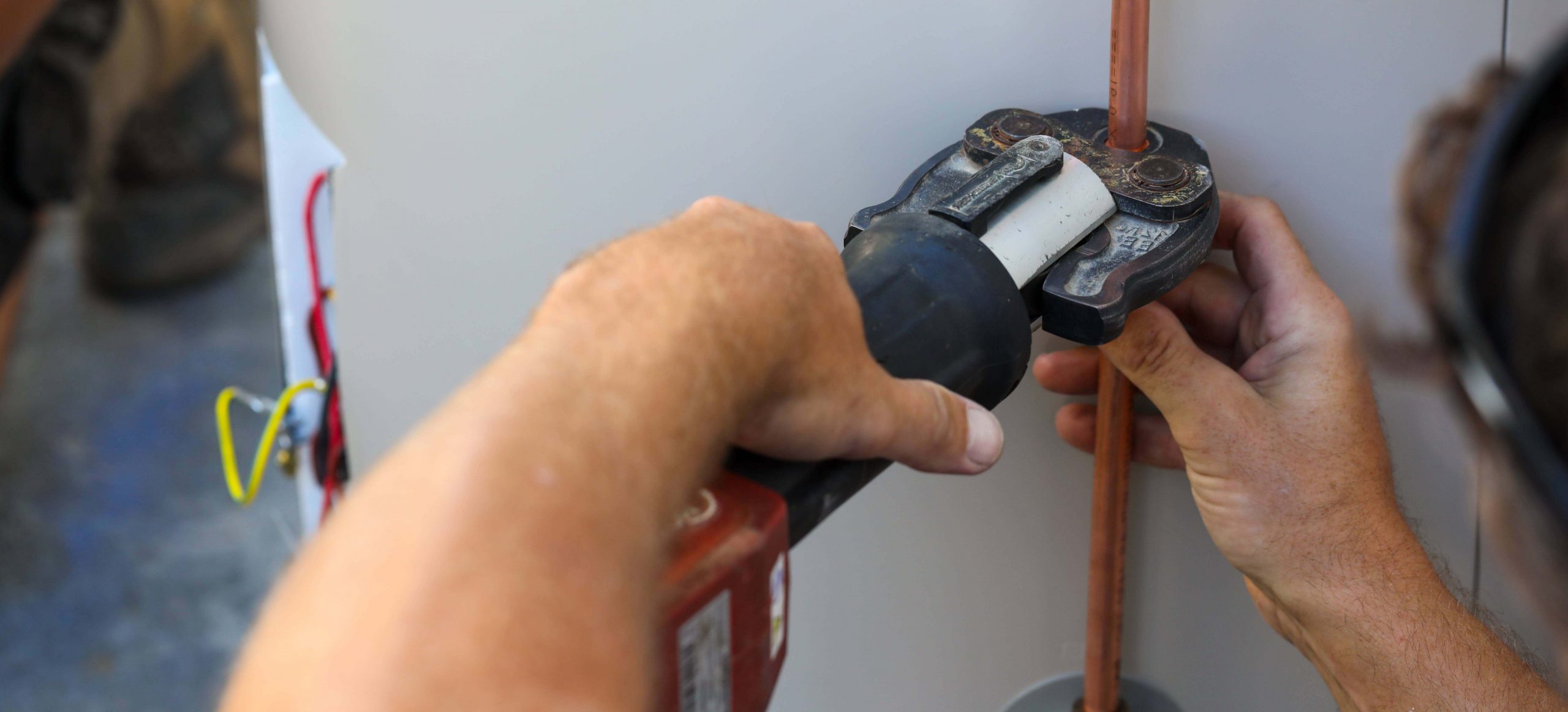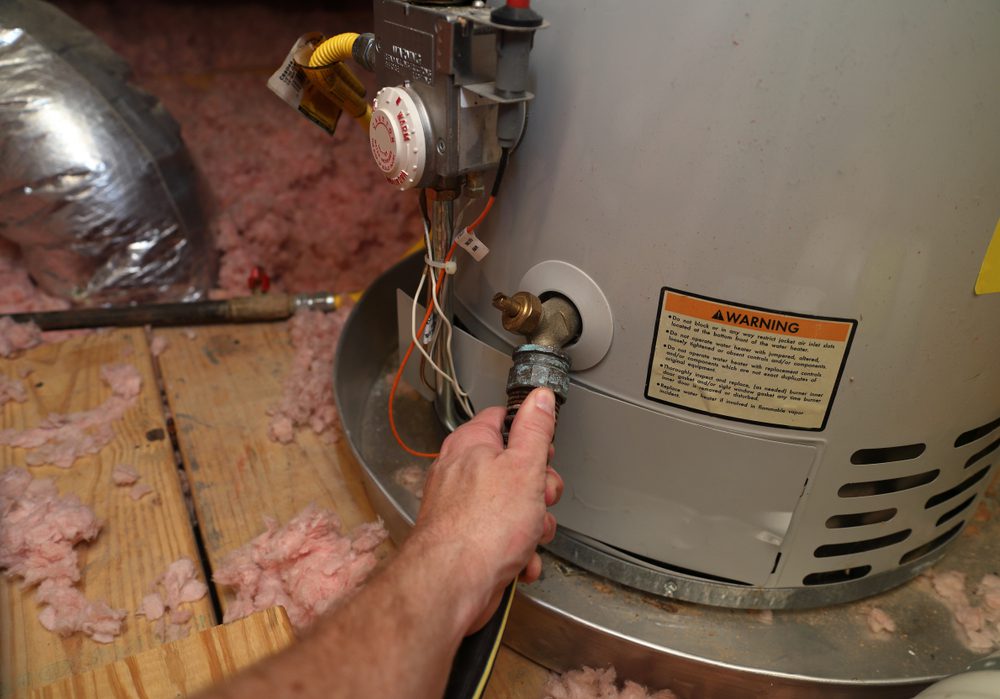Managing the Standard Water Heater Crisis Scenarios
Managing the Standard Water Heater Crisis Scenarios
Blog Article
The article in the next paragraphs involving Common Hot Water Heater Problems is particularly intriguing. Give it a try and draw your own personal ideas.

A water heater is just one of one of the most essential basic devices that can be discovered in a home. With hot water heater, you don't require to undergo the tension of home heating water manually every time there is a requirement to take a bath, wash, or the recipes. There is always a possibility that your water heating system would certainly act up as with a lot of mechanical gadgets.
It is essential to note any kind of little malfunction and tackle it quickly prior to things leave hand. A lot of times, your water heater begins to malfunction when there is a build-up of debris as a result of constant usage. As a preventative measure, regular flushing of your hot water heater is suggested to stop sediment build-up and protect against functional failing.
Common water heater emergency situations and exactly how to manage them
Dripping hot water heater storage tank.
A dripping container could be an indication of deterioration. It could trigger damage to the floor, wall and electric tools around it. You might even be at threat of having your home flooded. In this situation, you should shut off your hot water heater, allow it to cool, and very carefully try to find the resource of the problem. Sometimes, all you require to do is to tighten a few screws or pipeline connections in cases of small leaks. Yet if this doesn't function and the leakage persists, you may require to employ the solutions of a specialist for an ideal replacement.
Changing water temperature.
Your water heater can begin producing water of various temperature levels typically ice cold or hot hot. In this scenario, the first thing you do is to make sure that the temperature is readied to the desired degree. If after doing this, the water temperature maintains changing during showers or various other activities, you may have a damaged thermostat. There might be a need to replace either the home heating or the thermostat device of your water heater.
Inadequate warm water
It may be that the water heating system can't support the warm water need for your apartment. You might update your water heating system to one with a larger capacity.
Stained or smelly water
When this takes place, you require to recognize if the concern is from the water or the container resource. You are certain that it is your water heating unit that is damaged if there is no amusing odor when you run cold water. The stinky water can be triggered by rust or the buildup of microorganisms or debris in the hot water heater storage tank. Once you notice this, you can try flushing out your storage tank or changing the anode if the trouble lingers. The function of the anode is to clean out germs from your tank. Given that the anode rod replacement needs an extensive expertise of your water furnace, you will require the assistance of an expert.
Verdict
Some homeowners neglect little caution and also minor faults in their hot water heater system. This just brings about more damages and a feasible total failure of your device. You should handle your water heater mistakes as soon as they come near stay clear of more expenses and also unneeded emergency difficulties.
With water heaters, you do not require to go through the stress of home heating water by hand every time there is a need to take a bath, do the laundry, or the dishes. Your water heating system could start producing water of various temperature levels typically ice scalding or chilly warm. It may be that the water heating unit can not support the hot water need for your apartment. If there is no funny odor when you run chilly water, after that you are particular that it is your water heating unit that is malfunctioning. The odiferous water can be caused by corrosion or the buildup of bacteria or debris in the water heating system storage tank.
9 COMMON CAUSES OF WATER HEATER LEAKS
Why Is My Hot Water Heater Leaking?
Old Water Tank
Just like with any other household appliance, water tanks wear down as they age. Older water tanks are more susceptible to leaks and lower water retention. Generally, a leaking water tank results from rust buildup that causes internal corrosion. As the inside of the tank corrodes, cracks form that allow water to escape. You can patch the cracks to buy some time, but this is only a temporary fix. Eventually, you’ll need a new unit.
Drain Valve
You can use the drain valve on your water heater to empty and clean the tank. This component can become loose as it encounters continuous usage throughout the years. If your hot water heater is leaking, the source of the issue may be a loose drain valve. You may notice a mild water leak due to small openings that weren’t there before. Sometimes a simple tightening will do the trick, but if the valve is loose at the base, you will need to replace it.
High Pressure
Your water heater will naturally create pressure as it increases the water’s temperature. But too much pressure can cause problems. If excess pressure can’t escape the unit properly, water starts to leak through any cracks that are present.
Malfunctioning Temperature & Pressure Relief Valve
The problem above may result from a malfunctioning pressure relief valve. When the internal pressure of your water tank gets too high, the pressure relief valve allows steam to escape the unit and return to a stable temperature. Sometimes the valve just gets loose and needs to be tightened, but if it’s broken, you need to replace it with a new one.
Inlet & Outlet Connections
During the heating process, cold water comes into the tank through the inlet connection, and hot water exits through the outlet connection to travel through the pipes in your home. As with drain and pressure relief valves, these connections can loosen over time and cause a water heater leak. If this happens, either try to tighten the connections yourself or call a professional plumber.
Tank Interior
Water heaters have two “shells,” an internal shell that contains the water and an external shell that insulates the internal shell. While water leaks coming from the external shell are easy to spot because it’s just covered by a thin metal layer, they’re harder to catch in the internal shell because it’s covered by two layers of material.
Collection of Sediment
Here’s why regular water heater maintenance is so important. If you neglect cleaning the tank, sediment builds up at the bottom and eventually causes the unit to crack. The formation of cracks in the tank can cause a mild to severe water heater leak in your home. If the tank starts leaking, all you can do is replace it entirely. So do yourself a favor and clean the tank a few times a year to prevent this from happening. Your wallet will thank you later.
https://www.horizonservices.com/about-us/blog/9-common-causes-of-water-heater-leaks/

As a serious reader about Is Your Water Heater Leaking?, I figured sharing that piece of content was a good thing. Do you know about another individual who is fascinated about the niche? Feel free to share it. Thanks for your time. Visit us again soon.
24/7 emergency? We're here! Report this page